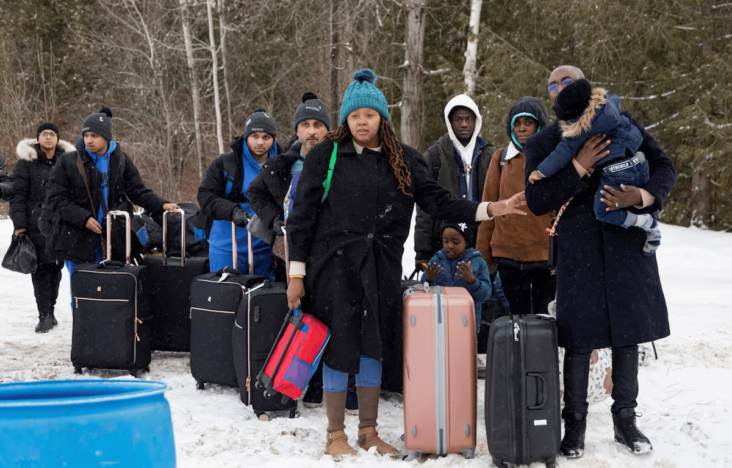
The Department of Immigration said the Trudeau Liberals are phasing out costly hotel subsidies for illegal immigrants and refugees, and the responsibility will be shifted to local authorities.
The federal government is phasing out the program that pays for room and board for illegal immigrants and refugees. It will be up to local authorities to find “permanent, sustainable” housing for foreigners by 2026, per Blacklock’s Reporter.
There has been no federal audit to date to calculate the total cost of illegal immigration on Canadian taxpayers. An Inquiry Of Ministry tabled May 3 in the House of Commons said room and board for illegal immigrants cost taxpayers an average $224 per day. That works out to $6,720 per month.
Shelter subsidies would be extended by $1.1 billion “starting in 2024” but only for three years, wrote the department to the Senate national finance committee. From 2026 subsidies will be paid for permanent housing rather than hotels.
The department did not explain where local authorities were expected to find permanent shelter for foreigners.
“In Budget 2024 the federal government indicated its intent to continue to support jurisdictions while shifting focus towards permanent approaches,” wrote the department.
“Funding in 2026 will be conditional on provincial and municipal investments in permanent transitional housing solutions for asylum claimants.”
“(The move will) transition the department’s response towards more effective and sustainable solutions.”
The department disclosed it had spent billions in direct subsidies for temporary shelter including hotel rooms.
“Historically asylum claimants were expected to secure their own housing and when they could not they accessed provincial and municipal shelter systems,” the document states.
“Since 2017 however, due to the higher volume of claimants arriving in Canada the government has expended approximately $1.76 billion to help address the interim housing needs of asylum claimants.”
Spending included $960 million in shelter subsidies paid to municipalities and provinces through an Interim Housing Assistance Program. Another $796.5 million was paid directly to hotelkeepers.
The Canada Mortgage and Housing Corporation (CMHC) reported May 1 ongoing housing shortages are expected to continue for several years,
“Supply challenges, notably the lagged effects of higher interest rates, mean new construction in 2025-2026 will not reach 2021-2023 levels,” said CMHC, adding increased rent and rental shortages will continue.
“Growing demand for rental homes will not be met because the cost of home ownership will lead households to stay in rental housing. Rents will rise and vacancy rates will fall.”
Analysts counted 240,267 new home owners in 2023 and 261,849 in 2022 — rates that fall short by two-thirds yearly quotas required to reach an “affordability” target of 3.5 million new homes by 2030 in addition to ordinary construction rates, according to a 2022 CMHC report.




